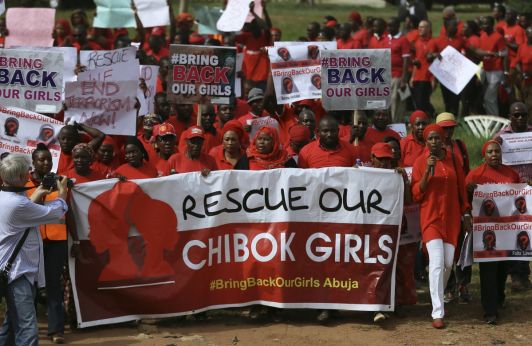Chibok schoolgirls might be released if negotiators use them as 'bargaining chips', diplomats say

As forces from multiple countries launch joint offensives against Boko Haram, diplomats say that the group may yet be pressured into releasing the missing Chibok schoolgirls that they have held captive since last year.
The group of 276 Nigerian female students were kidnapped by the militant group last year from the town of Chibok.
Despite international outrage and military assistance to the Nigerian authorities, Nigerian government security forces have failed to locate the girls. Experts believe that Boko Haram may have split the schoolgirls into multiple groups, making it harder for the Nigerian government to successfully rescue them.
A previous report in WND quoted International Christian Concern's Africa analyst Cameron Thomas as saying that some of the abducted girls had been sold off to the militants as child brides "for as little as $12."
The Nigerian government under former President Goodluck Jonathan opposed negotiations in the past that would have seen the captured schoolgirls swapped with militants who were previously arrested by security forces.
As pressure mounts from the joint offensives carried out by soldiers from Chad, Nigeria, Niger, Cameroon and Benin, diplomats told The Daily Telegraph that individual unit commanders may be forced to use captives, including some of the Chibok schoolgirls, as "bargaining chips."
A multinational task force formed in February specifically to combat Boko Haram and composed of military personnel from the five countries has succeeded in the past two months in reclaiming territories in Nigeria that were captured by the militants and set up as "caliphates."
"If pressure is maintained, that is one of the ways that the girls could find freedom," an anonymous diplomat told The DailyTelegraph.
"For some of these armed groups, they could be bargaining chips for some kind of settlement with the authorities," he explained.











